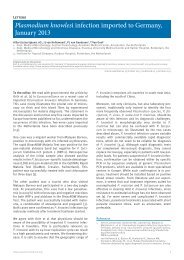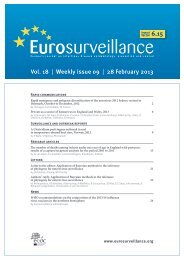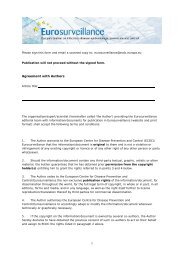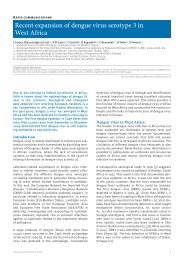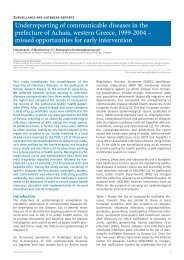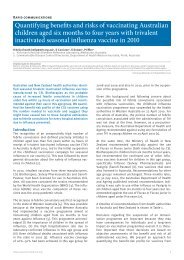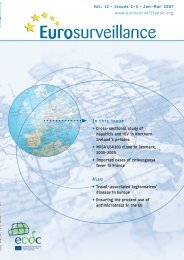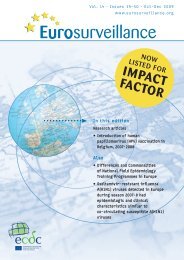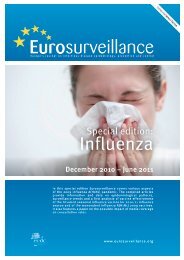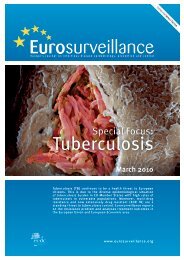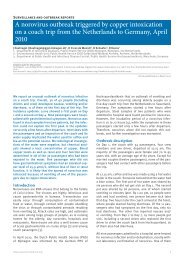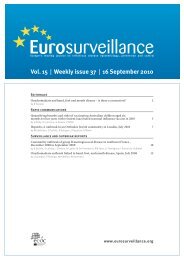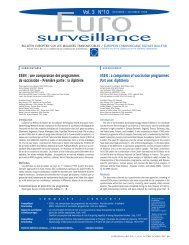Neisseria meningitidis - Eurosurveillance
Neisseria meningitidis - Eurosurveillance
Neisseria meningitidis - Eurosurveillance
Create successful ePaper yourself
Turn your PDF publications into a flip-book with our unique Google optimized e-Paper software.
News<br />
ECDC starts pilot phase for collection of molecular<br />
typing data<br />
I van Walle (ivo.van.walle@ecdc.europa.eu) 1<br />
1. European Centre for Disease Prevention and Control, Stockholm, Sweden<br />
Citation style for this article:<br />
van Walle I. ECDC starts pilot phase for collection of molecular typing data. Euro Surveill. 2013;18(3):pii=20357. Available online: http://www.eurosurveillance.org/<br />
ViewArticle.aspx?ArticleId=20357<br />
The European Surveillance System (TESSy) molecular<br />
surveillance service (MSS) was launched in late<br />
November 2012. This new service enables European<br />
Union and European Economic Area countries to upload<br />
detailed molecular typing data for Salmonella, Listeria,<br />
E. coli (VTEC/STEC) and multidrug-resistant M. tuberculosis<br />
(MDR-TB) to the MSS database, hosted by the<br />
European Centre for Disease Prevention and Control<br />
(ECDC). So far, 13 countries are providing data for the<br />
three food and waterborne pathogens, and it is likely<br />
that more countries will join the system in 2013. For<br />
M. tuberculosis, 23 countries are currently providing<br />
molecular typing data. It is likely that in the future,<br />
more pathogens will be added to the MSS.<br />
The objective of the data is to (i) improve the speed<br />
of detection of dispersed international outbreaks, (ii)<br />
improve trace-back of the source of an outbreak and<br />
Article published on 17 January 2013<br />
identify risk factors, and (iii) improve investigation of<br />
transmission chains across the EU and globally, and<br />
(iv) improve Member State response to outbreaks.<br />
Nominated users in countries can query ECDC databases<br />
to see if isolates that are genetically similar to<br />
isolates found in their country have been detected in<br />
other countries. A team of curators guarantees the<br />
quality of the data and also performs routine cluster<br />
detection. If a cluster is found, countries can then<br />
use this cluster information for possible public health<br />
action. In such cases, the ECDC Epidemic Intelligence<br />
Information System will be used as before to help coordinate<br />
action across countries for Salmonella, Listeria<br />
and E. coli whereas the European Reference Laboratory<br />
Network for TB would be used in the case of MDR-TB.<br />
An evaluation of the pilot phase is planned for the end<br />
of 2013.<br />
118 www.eurosurveillance.org



